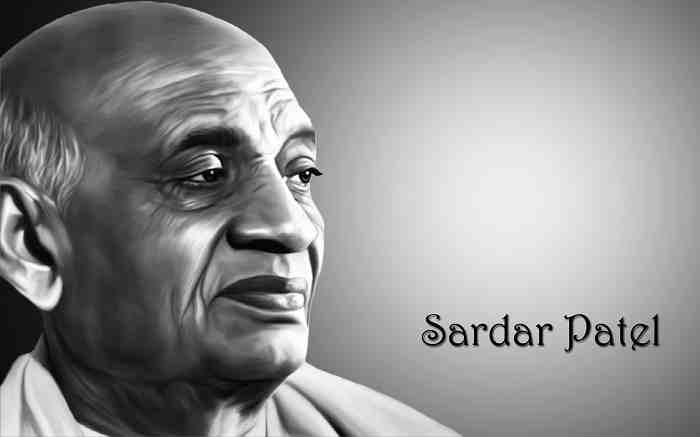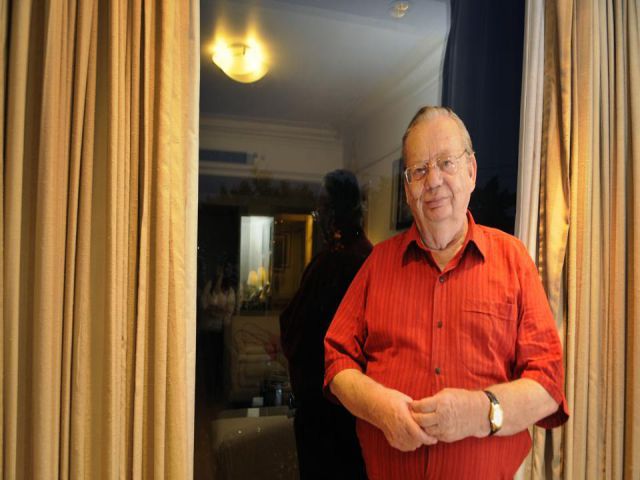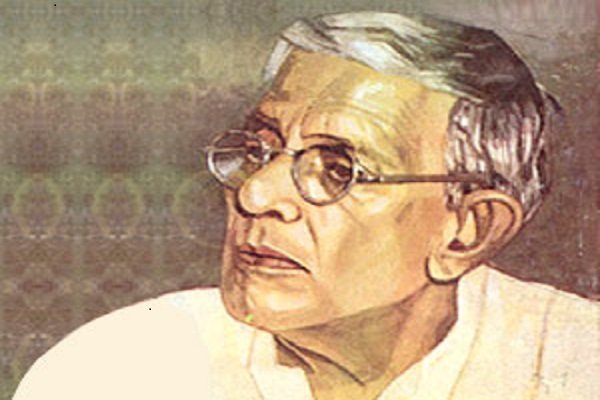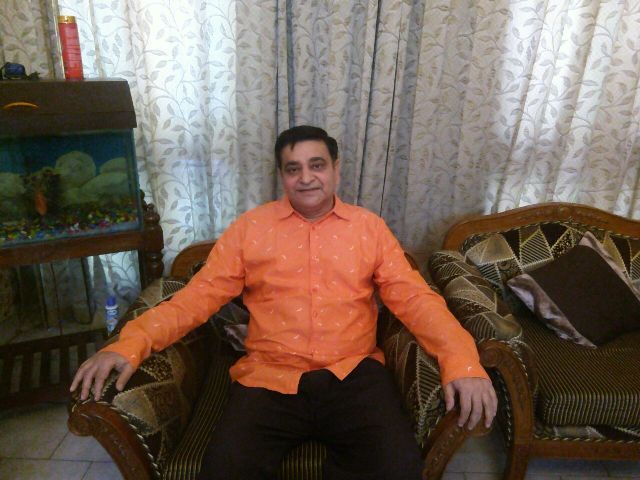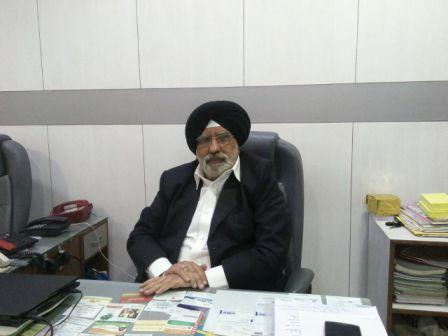‘East of Love, West of Desire’: A conversation with Dinesh Prasad

‘East of Love, West of Desire’: A conversation with Dinesh Prasad
The theme of partition has been one that has captured the fancy of many authors. The mass violence, the struggles of displacement and the love lost are memories that still haunt many who witnessed it. Dinesh Prasad, with his first book “East of Love, West of Desire”, a collection of short stories, attempts to explore the violence of the period while also looking for the common thread of love that bound people and which helped them survive and move on. On the occasion of his book launch, we at One World News interviewed him about his journey as a first time writer and the theme of his stories.

Dinesh Prasad the author of ‘East of Love, West of Desire’.
First thing I’d like to talk about is your title inspiration. You explained how since the stories revolve around the time of partition, it’s about the love that was left here in India and the desire that was taken across the border. It sort of personifies the emotional state of Sa’adat Hasan Manto, who incidentally also is the author of many short stories around the theme of partition. His heart was always left here. I would like to ask how much of your work has been inspired by him and how much is he present in these stories?
(Smiles) You will see glimpses of him throughout the book because I have read literally all the partition stories written by Manto and he’s very, very graphic. Amrita Pritam, is another author I read extensively. Pinjar for example is beautiful. It touches upon many topics, in terms of, the psychology of the people, the conditions of the girls who were picked up, the condition of the refugee setup. Then there’s Khushwant Singh’s ‘Train to Pakistan’ which again is very graphic. They all have been inspirations.
When I read the literature around the partition from the ones you just mentioned, I remember feeling very disturbed as it felt like some violence was perpetrated on me just reading it. How do you convey that chaos through your work?
I think if you read the literature around that period, all the sane people had gone insane, in some way or the other. My personal opinion is that this was because of the confusion created about the whole context. There was no information, no planning. If you think about the history around it, the partition was actually supposed to happen in June 1948, but it happened way before that, and that was exactly because of a lack of proper planning. How the people will be managed? How the transfer would be managed? How the assets would be managed?
The other thing was, that time was a victim of rumor mongering. Rumors would just flare up, lead to a lot of violence and then die out. I don’t think political will was the challenge; the administrative machinery didn’t have enough resources to manage the chaos.
If we can boil it down to a simple fact, during chaos the destructive instincts inherent in human beings to come out. However, here in this book you talk about “love”. Is that the fiction in the stories or your perspective?
I solely believe that love is the only thing that will survive everything. If you look at hatred, it can survive for some time with certain intensity but it extinguishes after a while. Love continues. And I think, that’s what I’ve tried to convey through this book, that people were affected by the hatred, but a lot of people carried the love in their bosoms when they moved from one part to the other. I think that is what helped them carry on with life after this catastrophic event. You have to hold on to something and it was love that they held on to in that scene of hatred.

Discussions sparked off by the partition stories.
I always wanted to ask any author who wrote on the subject of partition, that you write about that time, the violence that was around and the gore and morbidity which surrounded the country. What is the purpose? Is it a documentation of the time, historicizing it? Or is it reliving the whole process as a therapeutic endeavor?
There are many reasons why I display the graphicness of the violence. It is to make people understand that violence has its aftermaths, so please think about that before picking that as an option. It leaves a lot of devastation behind, lot of shattered lives behind. Just pause and think about it.
Also as an author when you write about it, you go through each of those emotions. In one of the stories, a character is being chased down to be killed, and I actually felt the terror rise within me because if somebody is going to kill me what is it that I’m thinking? Is it pure survival?
Also, the helplessness that accompanies this terror,so for instance, in this story when this character reaches the police station, the officer completely ignores him, as for the officer he’s just a statistic. What do you do in a situation like that? I want people to be sensitized about such emotions.
Is this an attempt for you to reconnect with your roots?
None of my roots are in the partition. My father is from UP and my mother is from MP. But I have been very fascinated by this period. The fascination is more with the people, in terms of their survival instincts after such a critical and shattering episode they’ve gone through. I learnt from them how you don’t let tragedy stop you. Life is for living.

Dinesh Prasad reading excerpts from his new book.
Since you’ve written a collection of short stories, an obvious question would be which is your favorite story? But my question would be, is it possible to have a favorite story for you as the author?
I have a lot of favorite bits and pieces in each of the stories. But I’ve been forced to answer this and you’re right, I can’t answer that. But if I’m forced to I would say Meiral. It’s a very simple, sweet story. You should read the story to understand the emotions of the woman and the man described through the letters they write to each other. Their love story is a secret and the only one who knows is the postman.
How was your experience writing? How difficult was it?
It gets you to experience a lot of things. In certain stories that were violent, I had to bring out the violence inside me. It’s an extreme projection. Then I had to sometimes think about, if I were straitjacketed into some situation, how would I escape? So you go through all those emotions. But the emotion that I went through the most was love.
The process of writing is a difficult one, undoubtedly. However, the process of parting with the work once completed is another struggle. How difficult is it for a writer to part with his work, to put it a publisher, to put it out for the readers and ask them how they feel about your work?
Criticism always hurts. But you have to be prepared for it. There are some worries around the projections you’ve made in your work, thinking what others think about the kind of person you are based on those projections. But as I said you need to be prepared for all of that.
So are you prepared?
(Laughs) Yeah I’m trying to.
Have you always been an avid reader? Which have been your favorite books?
Yes! I’ve always been a very avid reader. As for the authors, Gabriel Garcia Marquez is my all time favorite. Haruki Murakami and Toni Morrisonare exceptional authors too. From our Indian authors, Amrita Pritam is brilliant; Gulzar and Manto are my favorites too.
Of late in terms of literary style, I’ve discovered, Jeanette Winterson, she has a way with words. The calisthenics of her words is beautiful. I’ve drawn a lot from these authors.
If you had only one novel to read for the rest of your life which would you pick?
The ‘Leaf Storm’ by Gabriel Garcia Marquez.
Any regrets about the book post its publication?
Only one, that I could include one story from the Eastern part of the country. I had it in my mind, but by the end I was too emotionally taxed. I still have it in my mind.
Which music played in the background while you were writing?
There is my all-time favorite Leonard Cohen that played in the background. Rashid Khan was another. I listen to a lot of modern jazz. It really helps me relax and concentrate. And I have started building associations between music and writing.
Lastly, what are your plans for your next book?
After this collection of short stories I would now want to start a novel. One is in the offing. Let’s see!


